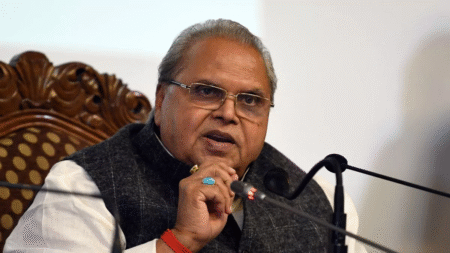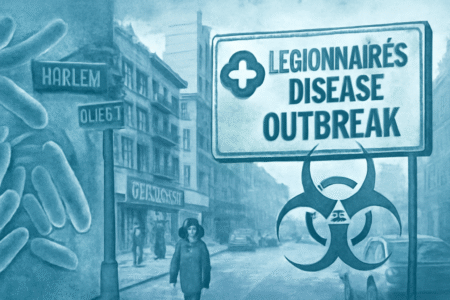On September 26, 2024, world leaders and international organizations convened to address one of the most pressing issues in global health: antimicrobial resistance (AMR).

With an increasing threat to public health and global economies, the World Health Organization (WHO) announced a renewed commitment to combat AMR through coordinated international action.
Table of Contents
What is Antimicrobial Resistance?
Antimicrobial resistance occurs when bacteria, viruses, fungi, and parasites evolve and no longer respond to medicines, making infections harder to treat and increasing the risk of disease spread, severe illness, and death. AMR threatens to undo decades of medical advancements and poses a significant challenge to achieving global health goals.
Why is AMR a Global Crisis?
According to WHO, antimicrobial resistance has become one of the top 10 global public health threats. The misuse and overuse of antibiotics in humans, animals, and plants are driving the acceleration of AMR, leading to treatments becoming less effective, leaving patients vulnerable to infections that were once easily treatable.
It is estimated that by 2050, drug-resistant infections could claim as many as 10 million lives annually if decisive action is not taken. In addition to the human toll, AMR could cost the global economy an estimated $100 trillion, with low- and middle-income countries being disproportionately affected.
World Leaders Take a Stand
In a decisive summit hosted by WHO, leaders from over 50 countries gathered to reaffirm their commitment to combat AMR. The global consensus was clear: urgent, coordinated, and sustained action is needed. The summit’s key takeaways include:
- Strengthening Global Surveillance and Research
Improved data collection and research on AMR are essential. Leaders committed to investing in national and global surveillance systems to monitor the development of drug resistance, track the use of antibiotics, and enhance research for alternative treatments. - Promoting Responsible Use of Antimicrobials
Countries are encouraged to adopt policies promoting the responsible use of antimicrobials in human health, animal agriculture, and the environment. Strict guidelines to limit the unnecessary prescription and over-the-counter sales of antibiotics will be implemented to ensure that medicines are used effectively and appropriately. - Boosting Investment in New Treatments
To counteract the diminishing efficacy of existing antibiotics, the WHO called for increased funding and incentives for pharmaceutical companies to invest in developing new antimicrobial treatments, diagnostics, and vaccines. - Enhancing Public Awareness and Education
Public awareness campaigns are crucial to educating people on the importance of responsible antibiotic use. Governments pledged to launch educational initiatives that emphasize the risks of misuse and the importance of completing prescribed treatments. - Supporting Global Collaboration
The summit emphasized that AMR is a global problem requiring collaboration. Nations pledged to strengthen partnerships, share research and data, and support international frameworks such as the WHO Global Action Plan on AMR.
Impact on Public Health
The action plan set forth by the summit is expected to reduce the spread of AMR significantly. While no single country can resolve the crisis, global coordination on the production, prescription, and use of antimicrobials will be essential in curbing the rise of resistance.
Also Read : XEC Covid Variant: Know About Symptoms and Spread Across Europe
WHO Director-General Dr. Tedros Adhanom Ghebreyesus highlighted the importance of global unity in his closing statement: “Antimicrobial resistance is not a future problem—it’s a present-day crisis. We need every country, every sector, and every individual to take responsibility in the fight against AMR.”
What Happens Next?
The global commitments announced at the summit represent a critical step forward. However, action must follow the pledges. WHO will lead efforts to track progress, hold nations accountable, and offer guidance for implementing AMR strategies.
The action plan includes clear timelines and goals, such as reducing the spread of multi-drug resistant infections by 2030 and ensuring that 100% of national health systems have AMR prevention and control programs in place by 2026.
FAQs
Q: What is antimicrobial resistance (AMR)?
A: Antimicrobial resistance occurs when bacteria, viruses, fungi, or parasites evolve and become resistant to the drugs designed to treat infections, rendering standard treatments ineffective.
Q: Why is AMR a global health concern?
A: AMR poses a major threat to public health because it makes treating common infections more difficult, increases healthcare costs, and could lead to millions of deaths annually by 2050.
Q: What actions were decided upon at the summit?
A: Leaders committed to strengthening global surveillance, promoting responsible antibiotic use, increasing investment in new treatments, launching public awareness campaigns, and supporting international collaboration to combat AMR.
Q: How does the misuse of antibiotics contribute to AMR?
A: Overusing antibiotics or using them when not necessary contributes to the development of resistant bacteria, reducing the effectiveness of these drugs over time.
Q: What is the role of WHO in combating AMR?
A: WHO plays a pivotal role in coordinating international efforts to combat AMR, offering guidance, monitoring progress, and encouraging nations to adhere to the Global Action Plan on AMR.
Conclusion
The global summit on antimicrobial resistance marks a significant milestone in the fight against one of the gravest health threats of the 21st century. With strong international leadership, robust policies, and public cooperation, the world can slow down the spread of antimicrobial resistance and safeguard the future of healthcare.
- How to Stay Healthy During Flu Essential Tips for Every Family
- Satyapal Malik Death on 5 Aug 2025: Political Legacy That Shaped Indian Public Life
- Growing Legionnaires’ Disease Outbreak in NYC’s Harlem Claims Two Lives, Sickens Over 58
- Non-Alcoholic Drink Beer: fresh Alternative with a Unique Appeal
- Meet the Harley-Davidson X440: The Ultimate Desi Roadster
- OnePlus Pad 3: The Android Tablet That Wants Your Laptop’s Job













